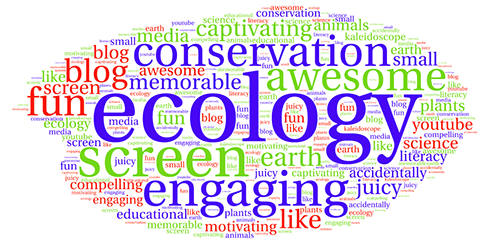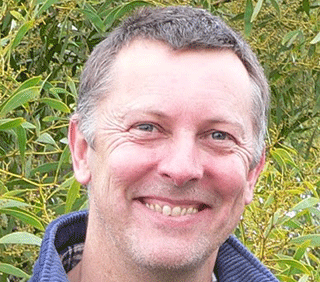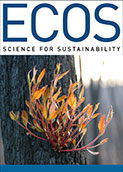
|
Published: 4 August 2014
Engage them and education will happen
Associate Professor Ian Lunt is an ecologist on a mission. He wants to raise ecological literacy beyond academic and professional circles. Assoc. Prof. Lunt describes his approach as ‘accidental education’.

|
|
|
On his blog Ecology for Australia, Assoc. Prof. Lunt communicates ecological principles and current debates in conservation with verve and imagination. His writing avoids the conventions of academic jargon in favour of storytelling, capturing complex natural processes with a mix of words, pictures, videos and animations. The blog posts range across ecology, conservation science, natural history and communication itself. Assoc. Prof. Lunt shares some of his tips on science communication with ECOS.
My mission statement as an ‘ecology blogger’ has now become – ‘to lure you away from Facebook and Twitter’. Just for a minute. To coax you out, I must first seduce your friends. Because you’ll follow them as you ignore me.
Social media can take ecology and conservation to the world. But endless messages on Twitter and Facebook make it hard to leave social media platforms and read shared materials. We all share links without reading them. Sharing without reading may boost empathy among the converted, but it can’t raise ecological literacy.
To raise ecological literacy we need readers, not just sharers, and to encourage people to read, we need enthusiastic endorsements like ‘this is %^&*ing awesome, read it now’.
Endorsements come from great stories. ‘Information dissemination’ doesn’t cut it. No one shares links to Wikipedia. Our stories have to be captivating, memorable, fun, motivating, accidentally educational and – most of all – short.
As more and more readers view the web on a mobile phone, each story sets sail on a tiny screen. Short paragraphs and lots of images are as important as small words. Every page scroll kills a reader.
Lots of superb communicators pack big science on small screens, using videos, podcasts, images and text.
The greater challenge is: how do we impart a corpus of knowledge, an entire discipline, in short, sharp clips? How do we teach ‘Plant Ecology 101’ in 500 word grabs, 2-minute videos and podcasts? More importantly, how do we do this so readers don’t realise what we just did?
Every post needs a hook and juicy content. Every post must stand alone, to be read in isolation or random order. Can we cut, paste and scramble our linear texts to create a kaleidoscope of informative vignettes?
That’s doable. I listened to the awesome podcast ‘Radiolab’ for years before I realized it was a ‘science show’. But it is a tall order for an individual. It’s hard to jumble styles and create an unpredictable mix of engaging tales. Writing one good story is hard enough; writing a series of posts so each engages a different set of readers is tough.
Fortunately, we don’t need to do it alone. Every reader collates stories from a multitude of sources: social media, email, RSS feeds, blog subscriptions and more. Each source provides the ingredients for readers to mix, match, savour and share, in any combination they choose.
‘Don’t hate the media, become the media.’ – Jello Biafra
Social media provides a platform to connect the world. We can share unread links among friends and preach to the converted, or we can write to be read and raise ecological literacy. It takes a lot of work to hew a short story from big data, so when you do, make sure to:
-
Cut it in half, and cut it in half again.
-
Cull the content, hone the metaphor and nail the narrative.
-
Meet your accidental, curious and uncommitted audience on their own turf; on their mobile phone.
-
And seduce every reader – not just to share your work – but to enthusiastically spruik on your behalf, ‘This is %^&*ing awesome, read it now. Right to the very end.’




